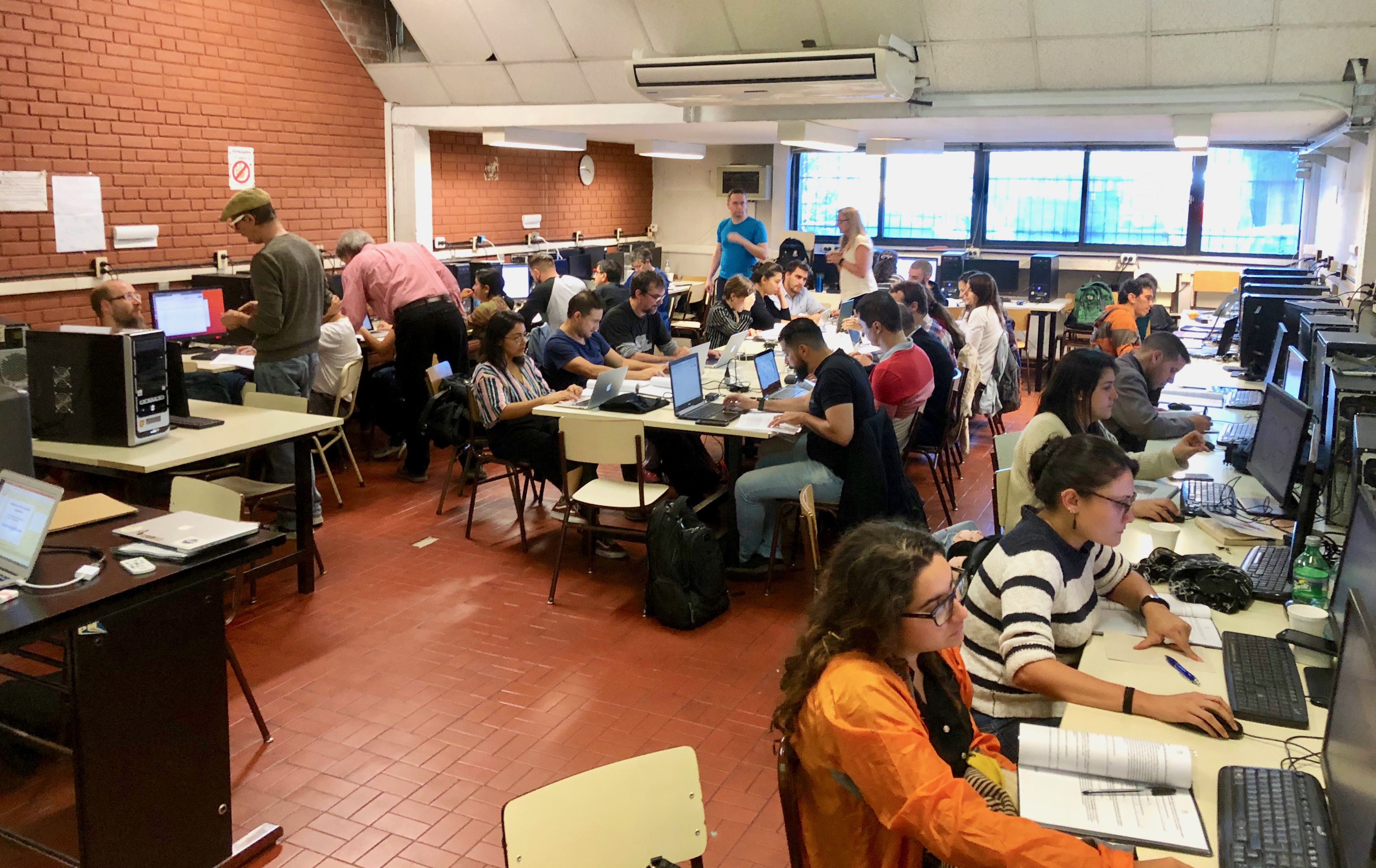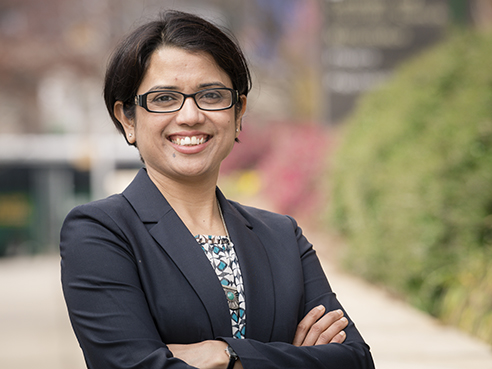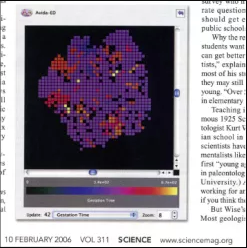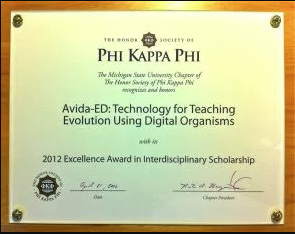Active LENS WAVES – 2020 Summer
We are looking to recruit five to ten early-career participants (including undergraduate students) for a ten-week, funded, full-time, fully-remote software development workshop during the summer of 2020. Please go to our WAVES page for more information and to apply to be a participant.
The virtual workshop will take place between May 25, 2020 and July 31, 2020. Participants will be expected to commit to full-time (approximately 40 hours/week) engagement with the workshop. To accommodate multiple U.S. time zones, all group meetings will be held over video-conference between 1pm and 4pm EST (GMT-4). A $6,000 stipend will be disbursed to participants in five bi-weekly installments of $1,200.
Avida-ED is a good option for an online lab
Exercises from our Lab Book provide actual experiments (as opposed to simulations) for on-line labs. Please visit our Curriculum page. Videos from our Active LENS Train-the-Trainers Workshop have been added to help professors / instructors / teachers get up to speed.
Active LENS Train-the-trainers Workshop – 2020 Summer
The summer in-person workshop is cancelled and that we will have a virtual workshop instead. Applications for a 3-day, intensive virtual workshop will open shortly. Expenses related to the workshop will be covered for the 20 workshop participants as part of an NSF-funded IUSE grant. This workshop will train instructors in the use of the Avida-ED software package, developed to help students learn about evolution and the nature of science, so that workshop participants can both implement classroom interventions using this software and also train other educators. Teams of two will learn to use Avida-ED and how to best incorporate it into courses that they teach. Please check back for location, dates and application link
Avida-ED wins ISAL Award
Avida-ED was the 2017 winner of the International Society for Artificial Life (ISAL) Education and Outreach Award. The award was announced at the Artificial Life conference, which was held September 4-8 in Lyon, France. Congratulations to everyone who has worked on the Avida-ED project over the years!
News and Events
• 2020 February NEW PUBLICATION: Delbert S. Abi Abdallah, Christopher W. Fonner, Neil C. Lax, Matthew R. Babeji, Fatimata A. Palé. Evaluating the Use of Avida-ED Digital Organisms to Teach Evolution & Natural Selection. The American Biology Teacher, Vol. 82, No. 2, pp. 114–119
• 2019 November 15: Robert T. Pennock gave an invited talk “Avdia-ED: Learning Evolution and the Nature of Science using Evolving Digital Organisms” at the Department of Botany at University of Wisconsin, Madison WI.
• 2019 August: The eight national Avida-ED Active LENS Workshop for faculty was held at Michigan State University in East Lansing, Michigan.
• 2019 August 2: Mike Wiser gave a 2 hour Avida-ED workshop at the International Society for Artificial Life meeting in Newcastle-upon-Tyne, UK
• 2019 July 14–18: Jim Smith ran a 2 hour workshop session on Avida-ED for teaching faculty at the BioQUEST/QUBES Summer Workshop, held at the College of William and Mary.
• 2019 July 8: Louise Mead gave a presentation about Avida-ED to the National Center for Science Education (NCSE) Teacher Ambassadors Workshop.
• 2019 June: William Beachly presented a poster on Avida-ED at a session during the AP biology reading in Kansas City and at the Association for Biology Laboratory Education in Ottawa, CA (pictured).  The abstract will be published as:
The abstract will be published as:
Beachly W. 2020. Is mutation a creative or destructive force in evolution? Article 58 In: McMahon K, editor. Advances in biology laboratory education. Volume 41. Publication of the 41st Conference of the Association for Biology Laboratory Education (ABLE). http://www.ableweb.org/volumes/ (once volume 41 is posted)
• 2019 June 24: Diane Blackwood, Matthew Rupp, Charles Ofria, Robert T. Pennock. “Avida-ED 4.0: Ecology” Poster Presentation at Evolution 2019. Providence, RI 
• 2019 June 24: Mike Wiser, Jim Smith, Louise Mead, Robert T. Pennock “Students reason similarly about bacteria and birds: A case study” Poster Presentation at Evolution 2019. Providence, RI
• 2019 June: The seventh national Avida-ED Active LENS Workshop for faculty was held at the University of Texas campus in Austin, Texas.
• 2019 May 30-31: Jim Smith traveled to Leesburg, Virginia for Loudoun County High School’s Research Day , where he gave two talks to students about MSU, LBC, and Avida-ED and was a judge for upwards of 30 student teams presenting their Avida-ED research posters.
• 2019 May: The Avida-ED team gave an invited workshop at the University of Buenos Aires at the invitation of Ignacio Sanchez and Diego Ferreiro under a CELFI grant they received. Over twenty faculty members from half a dozen Central and South American countries came to learn about how to incorporate Avida-ED into their courses.


• 2019 April 23: Anna Bowling, Michael Wiser, Louise S. Mead, James J. Smith, Robert T. Pennock “Avida-ED and Undergraduate Student Performance on the Conceptual Inventory of Natural Selection (CINS) Bacteria Versus Finch Questions.” Poster presentation at 13th Annual Lyman Briggs Research Symposium. Michigan State University, East Lansing, MI.
• 2019 April 18: Reid Blanchett, Mike Wiser, Louise S. Mead, James J. Smith, Robert T. Pennock “Evaluation of the understanding of the scientific process in students using Avida-ED via scientific process flowchart assessments” Poster presentation at SUTL Symposium. Michigan State University, East Lansing, MI.
• 2019 February: Richard Lenski gave an invited seminar at Kenyon College for Darwin Day focusing on experimental evolution including the use of Avida as a model system.
• 2018 October 8. Active LENS participant Sami Raut taught an Avida-ED workshop in India, increasing Avida-ED’s use internationally. (2018) 
• 2018 August: The sixth national Avida-ED Active LENS Workshop for faculty was held at the Michigan State University campus in East Lansing.

• 2018 June: The fifth national Avida-ED Active LENS Workshop for faculty was held at the North Carolina A&T campus in Greensboro.

• 2018 June 28 NEW PUBLICATION. Cory Kohn, Robert T. Pennock, Jim Smith, Michael J Wiser, and Louise S Mead. A Digital Technology-based Introductory Biology Course Designed for Engineering and Other Non-life Science STEM Majors Computer Applications in Engineering Education. (2018 25(5):1-12. DOI: 10.1002/cae.21986)
• 2018 April 6. NEW PUBLICATION: Amy Lark, Gail Richmond, Louise S. Mead, James J. Smith and Robert T. Pennock. 2018. Exploring the Relationship between Experiences with Digital Evolution and Students’ Scientific Understanding and Acceptance of Evolution. The American Biology Teacher 80(2): 74-86
• 2018: Whitley Lehto, Mayra Vidal, Gabby Gurule-Small, and Dale Broder taught an introduction to Avida-ED digital evolution software (developed at BEACON) at a regional conference, The 2018 Front Range Ecology Symposium, in Fort Collins CO. Many of the attendees have ideas for how to include Avida-ED activities in their classes.
• 2018 February. PUBLICATION: Wendy R. Johnson and Amy Lark. 2018. Evolution in Action in the Classroom: Engaging Students in Science Practices to Investigate and Explain Evolution by Natural Selection. The American Biology Teacher 80(2): 92-99 DOI: 10.1525/abt.2018.80.2.92
INSTRUCTOR COMMENTS
The following representative comments are taken from interviews with instructors
in a national study of classroom use of Avida-ED.
– “I want students to be engaged in something that is their own. [Avida-ED gives them] the opportunity to go in and interact with the process. … We can play out fairly complex relationships in a short amount of time. … The flexibility allows the students to have a much richer experience than some of the other kinds of labs that you see people doing.” – Small University Professor
– “We have run real-time evolution experiments with microbes, however, there is no other system that allows students to focus on the most important aspects of experimental science (hypothesis generation, experiment design/implementation/re-design/analysis, etc.) than Avida-ED. Avida-ED allows the students to concentrate on the “thinking” parts of experimental science as opposed to the “doing” parts.” – Research University Professor
– “Avida-ED is the only tool out there students can use to explore the dynamics of evolution. It allows them to see an active model of evolution and understand what a mechanism is.” – HBCU Professor
– “I liked the idea of [Avida-ED] being more open ended, so I could say I want you to define a question and see if you can explore it in this environment. That was different from a lot of the other computer-based [educational software] that were geared to teaching a particular fact about the model or microevolution or whatever.” – Research University Professor, upper division course
– “For me it was having the students work with something hands-on rather than giving them a case study that we were telling them about. They could do something with it.” – Lab Instructor in Residential College
– “Avida-ED makes me think that people are capable of understanding [evolution]. I have rejected what most people say, that most people aren’t going to get this, the general population can’t get this, it’s too hard. And [I say], no, the general population isn’t getting this because we’re not giving them experiences like Avida-ED.” – High School AP Biology Teacher
 |
 |
 |
| Avida-ED is discussed in the 10 Feb. 2006 issue of Science. | Avida-ED has been used in biology classes in universities and colleges such as Arizona State, Cornell, Grinnel, Harvard, North Carolina A&T, Univ. of Texas, Univ. of Washington, Univ. of Wisconsin-Madison and many more. | Avida-ED won the 2012 Excellence Award in Interdisciplinary Scholarship given by the MSU Phi Kappa Phi Honor Society. |
© Robert T. Pennock
